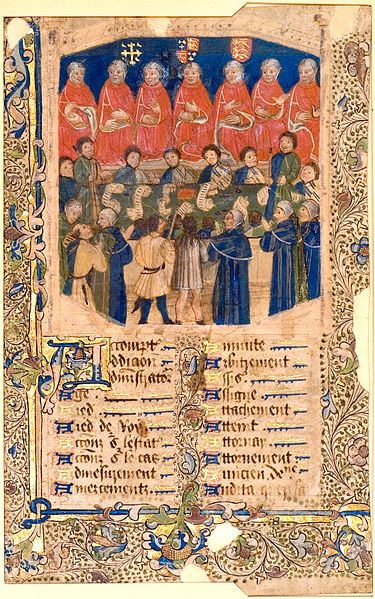Foakes v Beer [1884] UKHL 1 is an English contract law case, which applied the controversial pre-existing duty rule in the context of part payments of debts. It is a leading case from the House of Lords on the legal concept of consideration. It established the rule that prevents parties from discharging an obligation by part performance, affirming Pinnel's Case (1602) 5 Co Rep 117a. In that case it was said that "payment of a lesser sum on the day [i.e., on or after the due date of a money debt] cannot be any satisfaction of the whole."
Foakes v Beer
English contract law is the body of law that regulates legally binding agreements in England and Wales. With its roots in the lex mercatoria and the activism of the judiciary during the Industrial Revolution, it shares a heritage with countries across the Commonwealth, from membership in the European Union, continuing membership in Unidroit, and to a lesser extent the United States. Any agreement that is enforceable in court is a contract. A contract is a voluntary obligation, contrasting to the duty to not violate others rights in tort or unjust enrichment. English law places a high value on ensuring people have truly consented to the deals that bind them in court, so long as they comply with statutory and human rights.
A contract is an agreement enforceable in court. Contract law regulates all sorts of transactions, from buying a tube ticket to computerized derivatives trading.
The Court of Common Pleas (here in 1480) was, with the Court of King's Bench, the common law court that heard early cases about broken agreements in debt. Until 1602 it resisted hearing cases without claimants risking perjury.
Merchants trading within the North European Hanseatic League followed a law of the merchant, or lex mercatoria, whose principles were received into the English law of contract.
Unidroit, based in Rome and established in 1926 under the League of Nations to unify private law, maintains the influential Principles of International Commercial Contracts of 2004. A similar effort is the Principles of European Contract Law of 2002.





